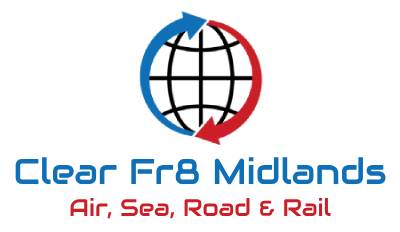Inco Terms 2020 - A Comprehensive Guide
Incoterms, short for International Commercial Terms, are a set of standardized international trade terms that facilitate the movement of goods and define the responsibilities and risks of buyers and sellers in international transactions. These terms are published by the International Chamber of Commerce (ICC) and are widely used in international trade to ensure clarity and consistency in contractual obligations.
Introduction to Incoterms 2020:
Incoterms 2020 is the latest revision of these trade terms, which came into effect on January 1, 2020. This revision is designed to address modern-day challenges and practices in international trade. Incoterms 2020 consists of 11 different terms, each representing a specific set of obligations and responsibilities for both buyers and sellers.
Key Changes in Incoterms 2020:
-
Introduction of DPU (Delivered at Place Unloaded): Incoterms 2020 introduced a new term, DPU, which replaces the old DAT (Delivered at Terminal) term. DPU allows goods to be delivered at any named place, not just a terminal, making it more flexible.
-
Different Levels of Insurance: Incoterms 2020 clarifies that the level of insurance required is at the discretion of the parties involved in the transaction. This provides greater flexibility in setting insurance arrangements.
-
Security Obligations: The new revision emphasizes security-related requirements and costs associated with complying with security-related regulations. This is particularly relevant in the post-9/11 era of heightened security measures.
-
Transport-Related Responsibilities: Incoterms 2020 provides more detailed guidance on the allocation of responsibilities and costs between the buyer and seller in the transportation of goods, such as container stuffing, carriage of goods, and delivery.
-
Bill of Lading with On-Board Notation: The use of electronic records is recognized in Incoterms 2020, but it also retains the option for a paper bill of lading with an on-board notation as a document of title.
Overview of Some Incoterms 2020 Terms:
-
EXW (Ex Works): The seller makes the goods available at their premises, and the buyer is responsible for all costs and risks from that point onwards.
-
FCA (Free Carrier): The seller delivers the goods, cleared for export, to the carrier nominated by the buyer at the seller's premises or another named place.
-
CIF (Cost, Insurance, and Freight): The seller delivers the goods on board the vessel at the port of shipment and pays for the cost and freight to the destination port. The buyer is responsible for insurance.
-
DAP (Delivered at Place): The seller delivers the goods at the named place of destination, ready for unloading, and the seller bears all the risks and costs until that point.
-
DDP (Delivered Duty Paid): The seller delivers the goods to the named destination, ready for unloading, and pays all the duties, taxes, and costs required to bring the goods to that location.
Benefits of Using Incoterms 2020:
-
Clarity: Incoterms provide a common language for international trade, reducing misunderstandings and disputes between buyers and sellers.
-
Risk Allocation: They clearly define when risk passes from the seller to the buyer, helping both parties understand their responsibilities.
-
Cost Allocation: Incoterms help allocate transportation and other costs between the buyer and seller, reducing confusion and potential disputes.
-
Global Acceptance: These terms are recognized and used worldwide, making them a valuable tool for global trade.
Conclusion:
Incoterms 2020 plays a crucial role in the world of international trade, providing a standardized set of rules that enhance clarity, reduce disputes, and facilitate the smooth movement of goods across borders. Understanding and correctly applying these terms is essential for any business engaged in international commerce. The changes introduced in Incoterms 2020 reflect the evolving nature of global trade, making it a valuable resource for both seasoned professionals and newcomers to the fiel
- What are incoterms 2020?
DOCUMENT REQUIREMENTS
- Certificate of Origin
- Bill of Lading
- Packing List
- Commercial Invoice
- Customs Clearance





